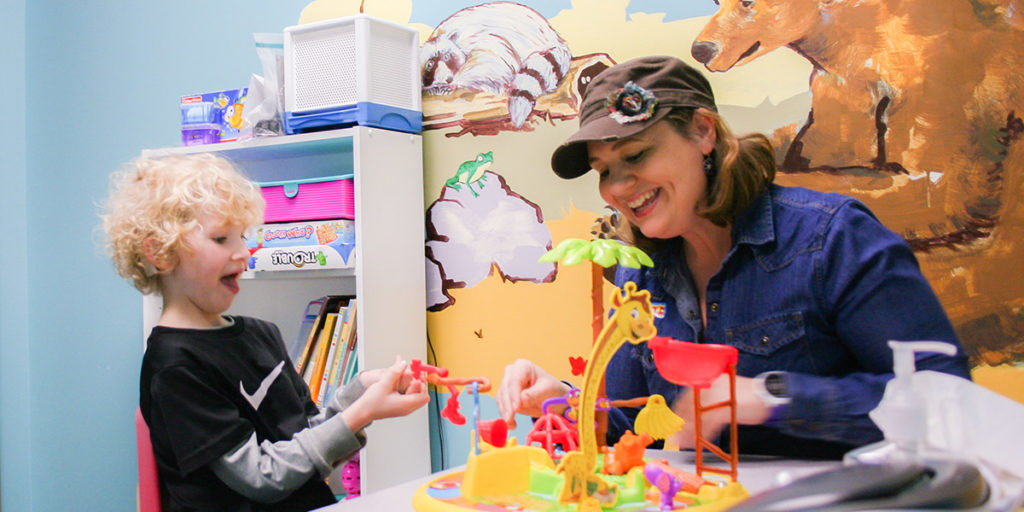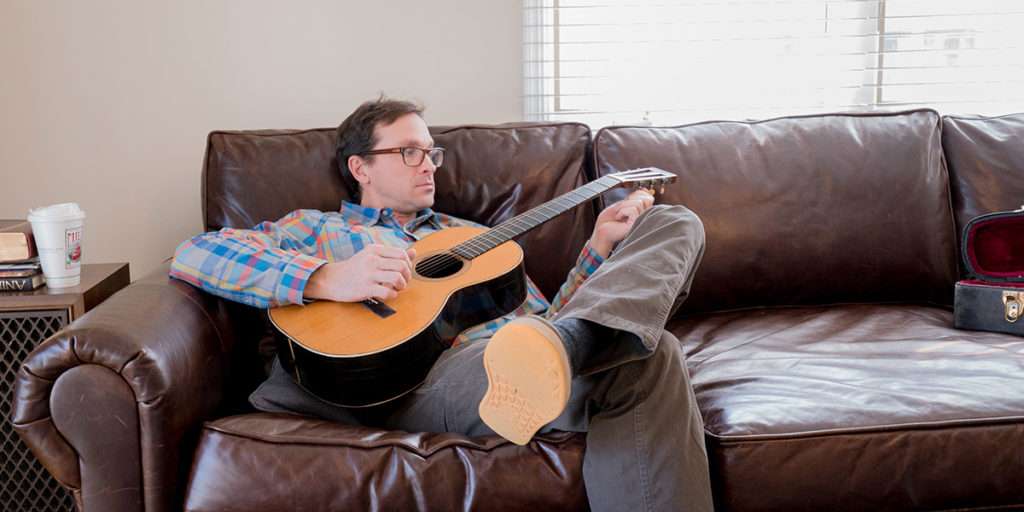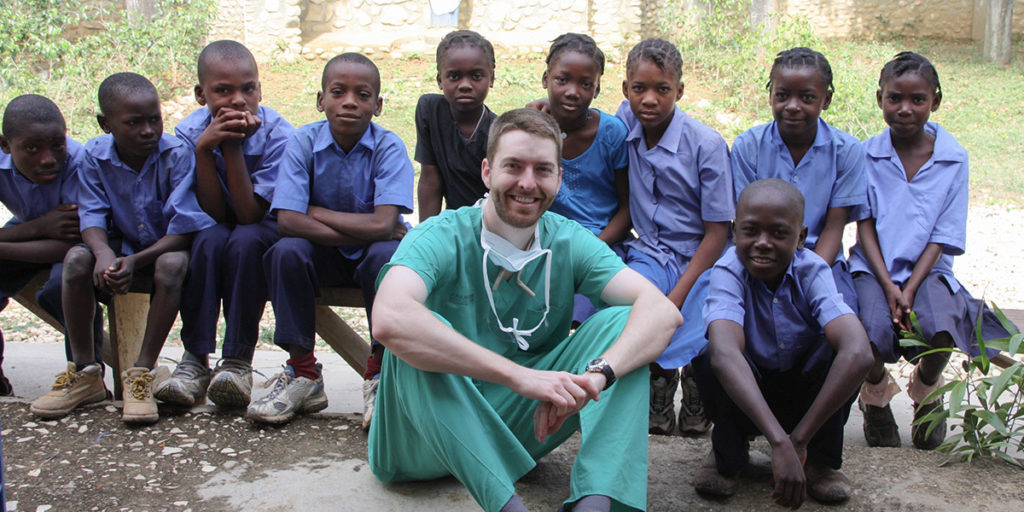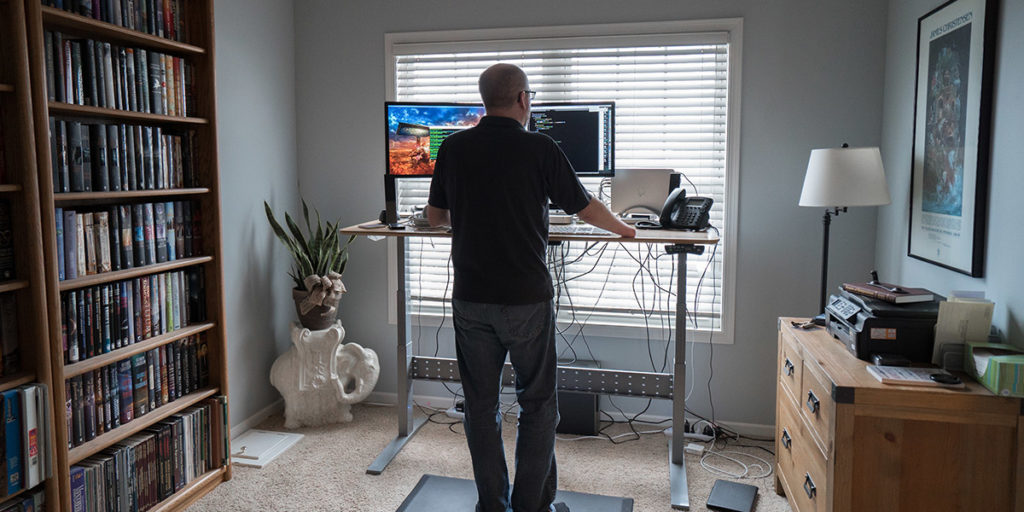
We all play different roles in the stories of the people we come into contact with. We might be a minor, supporting character or fill a major role that changes the whole scene. In every story we are involved in, it’s clear that the interactions between us and the information we add to another’s perspective are powerful and can even change the course of a life.
When Beth Brady began filling out college applications, she knew she wanted to pursue some sort of career in therapy, but wasn’t sure of her particular area of study.
Before she was born, Beth’s mother had been diagnosed with Multiple Sclerosis and was bedridden by the time Beth was ten. Throughout her childhood, she helped play a role in taking care of her mom and so had a firsthand experience with different kinds of therapy.
Starting at Nebraska Wesleyan, Beth pointed her studies in the direction of physical therapy, but was rerouted by a simple piece of paper she received in an elective education class. She knew she didn’t want to become a teacher, but wanted to work with kids. So when a flier was passed out in class one day listing the top ten careers in education, the top-listed “Speech Language Pathology” career grabbed her interest.
That one small thing was all it took. By her junior year, Beth had transferred to the University of Nebraska and enrolled in the Communication Disorders program. She immediately loved the scope of her classes and the curriculum’s science foundation.
When she encountered Dr. Mary Pat Moeller, director of the Boys Town Center for Childhood Deafness and Professor of Aural Rehabilitation (therapy to develop speaking and listening skills), her calling was solidified. She became Beth’s first career mentor, and provided a passionate and contagious case for Speech Language Pathology (SLP).
With the completion of her undergrad work, Beth wanted to expand her experience but needed a larger population to work from since deafness is a low-incidence disability.
She enrolled in the master’s program for Speech Language Pathology at the University of Minnesota where she could do research in a large city where there would be a lot of kids, with a lot of different case situations.
With her studies narrowed to aural rehabilitation, she focused her research on deafness. Her clinical supervisor provided invaluable information on how to interact with children who are deaf and their parents, and helped her to understand the parents’ point-of-view.
At that time, technology was less developed and children were arriving in their offices with unidentified deafness at the ages of two and three. The diagnosis at this late stage made it particularly important to consider the responses and worries of the parents.
The rest of her time in Minnesota was filled with learning sign language and cued speech (a method of communication with coordinated mouth and hand movements). She also played an active role on a cochlear implant team at the research hospital, where she helped make decisions on the benefits and risks of surgery and determined if the projected outcome was in the best interests of the patient.
When Beth and her husband Eric completed their respective degrees, they decided to return to Lincoln to be near parents and siblings and to establish roots for their own family. They bought a house in the near-south area of Lincoln and Beth found employment through Lincoln Public Schools.
“At first, I was disappointed with the job because I was working with a large variety of cases and I had thought I wanted to remain focused on my work with clients who are deaf. I quickly found out that the multi-disciplined nature of the work was a gift.”
At LPS, Beth worked with a team of professionals – physical therapists, speech-language therapists and occupational therapists. The team-approach proved to be invigorating and helpful. Together, they made home visits and worked in school settings, expanding their collective experience and knowledge.
“In Minnesota, our clients typically were those who had more resources and sometimes more extensive support systems. At LPS, we worked with all types of kids – those who had many resources and those who had very little.”
Although she found her work with LPS rewarding, Beth began to see the need for a better work/life balance. She had three children, and the limited resources and extensive needs at her job made it difficult to work part-time hours and arrive home with energy left over for her family.
Then she came across Heartland Speech and Occupational Therapy Services. The business had been started by two sisters who wanted to provide excellent care for children while simultaneously creating a work-environment that was family-friendly.
Beth eased into the job, gradually transitioning from LPS to working exclusively for Heartland, where she continues to work today.
In private practice, Beth still engages with a variety of clients and coordinates with a team of occupational therapists and speech-language pathologists who bring unique and beneficial perspectives to the table.
“I’m so glad this is a place where we share knowledge and are actively problem-solving. I believe that if a person ever gets complacent in their job, they are missing out. It’s important to keep learning, to be in a place where you are forced to dig for answers – it makes the work exciting and keeps you engaged and doing your best.”
Beth’s days are filled with collaboration and play. For young children, words create a framework for understanding what to do and how to interact with toys, games and books. Play-based therapy provides an environment where children can learn to match words and sounds to their play.
“The reason I was so attracted to speech therapy was that I love to see progression and I wanted to be a part of each kid’s story. I wanted to be able to be involved from the start to the finish as a child begins to learn to communicate.”
This year, that desire will be met when her first client with a cochlear implant walks across the stage to accept her high school diploma and heads off to college. The moment is significant because Beth had been the one to teach the patient her first word.
Life can change with the smallest of details and also through the large, unexpected ones. Beth Brady is simply grateful to get to play a role – of any shape or size – in the lives of each one of her patients.


